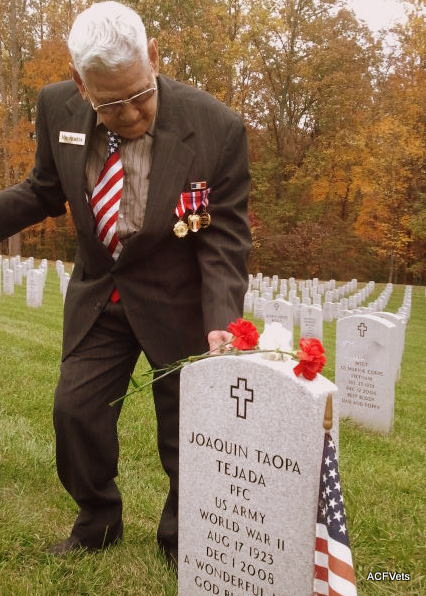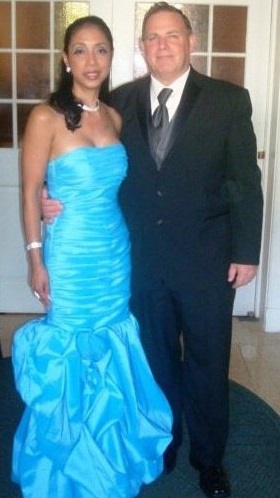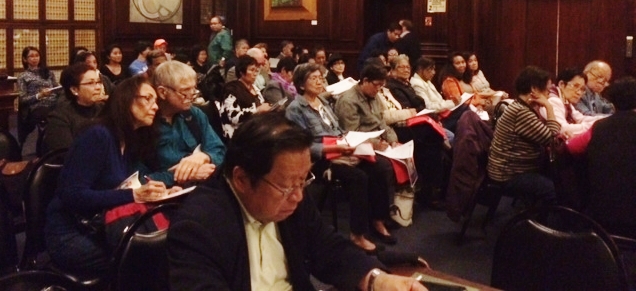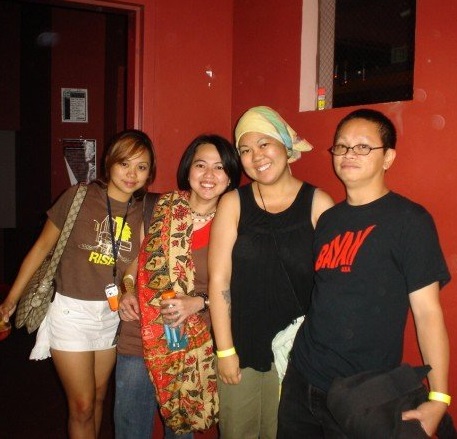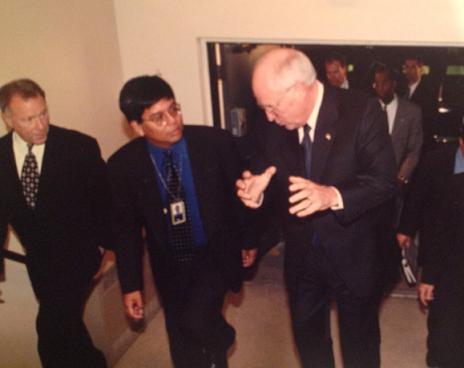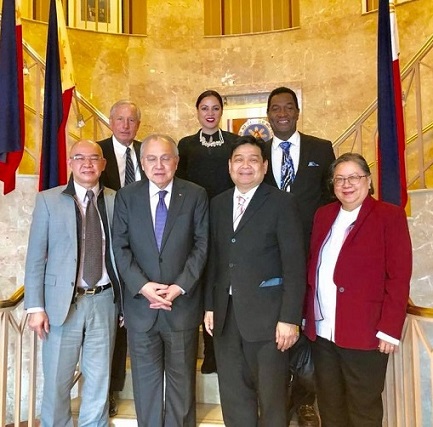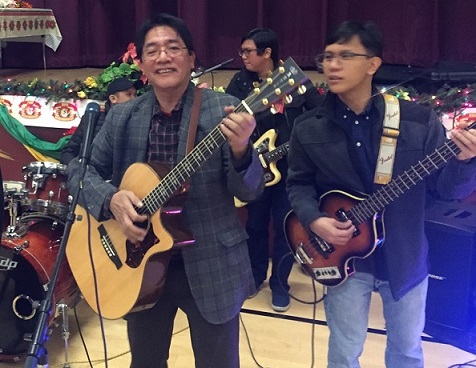Cardinal Tagle receives honorary degree, his ‘intellect, concern for the poor’ highlighted
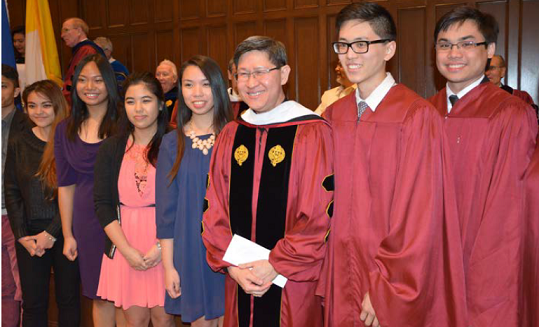
Cardinal Tagle with young FilAms and students from the Fordham University Philippine-American Club. Photo by Wendell Gaa.
Tagle received the degree of Doctor of Humane Letters honoris causa during a ceremony held at the Keating First Auditorium of Fordham’s Rose Hill Campus in the Bronx. Fordham is a Jesuit university.
“A man who has captured hearts and raised hopes around the world with his warmth, his intellect, his stirring liturgies, and his overriding concern for the poor and downtrodden,” read the citation from Fordham honoring Tagle. He is known for “combining strong convictions with a moderate tone and an emphasis on dialogue rather than pronouncements.”
The ceremony was witnessed by church leaders led by Fr. Joseph McShane, S.J. and Fr. Joseph O’Hare, S.J., the University President and President Emeritus. Edward Cardinal Egan, Archbishop Emeritus of New York, was also in attendance.
The Philippine government was represented by Ambassador Jose Cuisia, Jr., Ambassador Libran Cabactulan, and Consul General Mario De Leon, Jr.
The 32nd cardinal of Manila was only the fifth man of the church who was given the distinct honor by Fordham since its founding in 1841. Fordham became the first U.S. university to bestow a doctorate degree on Tagle.
In his remarks, Tagle gave a discourse about “Migrants and Refugees,” discussing the Philippine situation. He said the Catholic Church affirmed at the Second Vatican’s Council the right of a person to migrate or to remain in his home country if so desired, and the importance for people to be aware of their freedoms.
He said several problems of forced migration in the world were caused by social upheaval, war, and natural calamities. He stressed how forced migration has deprived refugees not only of their homes, but of their physical and social dignity. “Forced migrants/refugees needed to be assisted and seen as ‘human beings’ who constitute the core of the church’s social involvement,” he said.
He urged the community to do their part in uplifting the lives of suffering refugees worldwide.


